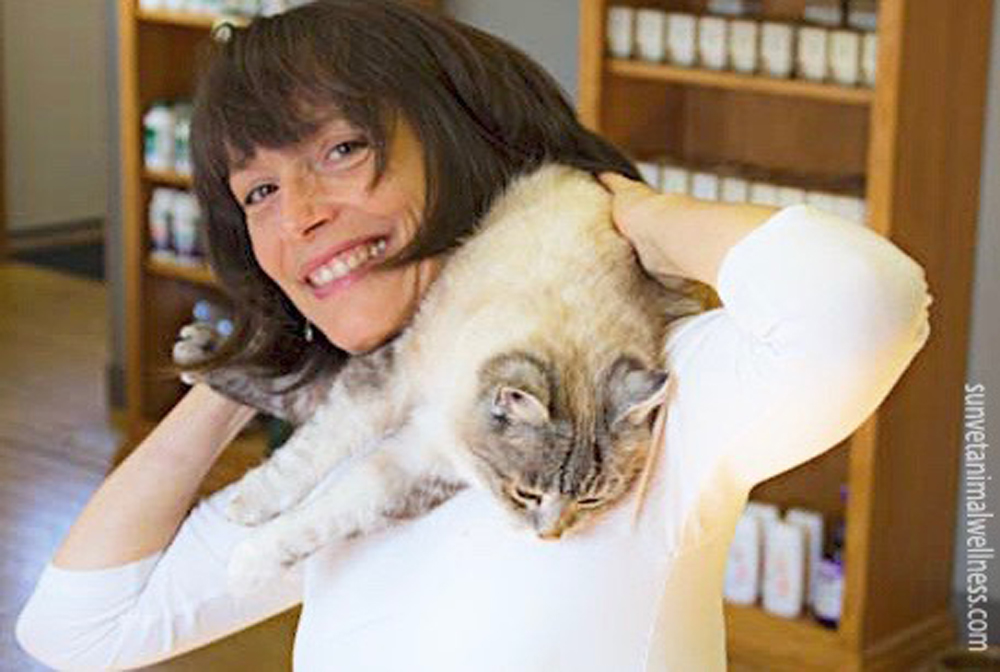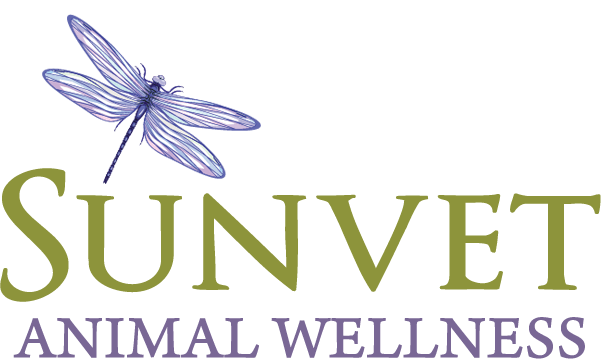Dr. Laurel Davis, Asheville’s homeopathic veterinarian, offers Stories from a Holistic Veterinarian, the blog of a holistic vet and “animal interpreter.” With a clinic in downtown Asheville, NC. Dr. Laurel also offers animal health, lifestyle and vaccination advice for cats, dogs and their human friends across the country.
Have a question for Dr. Laurel? Send it in.Want comprehensive or detailed dog or cat advice? Schedule an Ask Dr. Laurel™ phone or Skype consultation.
3 Spring Cleaning “Don’ts” from Asheville’s Homeopathic Veterinarian

The internet is full of lists detailing foods that can be toxic to animals, like chocolate, grapes, and onions, and there are plants found in nature and our homes that can be harmful to our furry friends, like poinsettias and lilies. But, have you ever wondered if your house-cleaning practices could be affecting your four-legged friends?
This is a timely question for many of us, as (for human beings) a big part of the seasonal shift into spring involves cleaning our homes. It’s time to pack up the sweaters, donate gently used items and clothing, scrub the walls and floors, and face the world with sparkling counters and floors and a fresh perspective!
Many household cleaning products contain harsh chemicals or additives that can be toxic or irritating for our furry friends. Since our cats and dogs groom themselves with their mouths, we must be extra careful to make sure that they are not accidentally ingesting any of these potentially harmful substances.
I’ve put together my list of Spring Cleaning tips to help you make the most of your spring cleaning frenzy while also keeping your precious pups and favorite felines happy and safe. This blog includes my list of “Don’ts.” and you can read more tips for non-toxic spring cleaning in part two.
Spring Cleaning Don’t #1: Don’t use harsh chemicals.
The best thing we animal lovers can do is to be educated on common household toxins and take care to limit our furry friends’ exposure to those items. I recommend doing a careful review of your cleaning supplies cabinet. Read the ingredients lists, and toss out anything that is known to be harmful if ingested or applied to the fur. As I said earlier, animals groom themselves with their mouths. Even if you’re not expecting Fido to suddenly start licking your cabinets, baseboards, or floors, those surfaces are all in his domain, so there is a chance that products you use to clean those surfaces could end up on his paws and fur and then in his mouth and digestive tract.
Key ingredients to avoid include the following:
– Phenols (which are typically found in cleaners with the word “sol” in the name)
– Phthalates
– Formaldehyde (found in general household cleaners)
– Bleach
– Isopropyl alcohol
– Perchloroethylene (found in rug and carpet shampoos)
Make sure to keep cleaning products up and out of your animal’s reach, but when in doubt, if you think your animal has been poisoned, contact your veterinarian or the Pet Poison Helpline at 1-800-213-6680 with any questions or concerns.
The Sunvet Animal Wellness Clinic team reached out to the Pet Poison Helpline to learn about what chemicals they recommend avoiding, and they were kind enough to provide us with these two blog posts they wrote on the topic. I recommend checking them out if you’re interested in more information about the signs and symptoms of accidental exposure to toxic substances.
Household cleaning products and your pet: What you should know about
Safe Spring Cleaning That Won’t Put Your Pet at Risk
Spring Cleaning Don’t #2: Don’t clean and freshen with strong scents.
While it can be tempting to fill your home with fruity, fresh, or tropical scents, there is a big chance that the perfumed air is aggravating your fluffy friend’s nose. Humans only have around 6 million scent receptors. I say “only” because cats have 80 million scent receptors, and dogs have a whopping 300 million! That’s 13 and 50 times more than humans have, so if the scent is strong to you, imagine how overwhelming it is for your furry friend.
On another note, plug-in air fresheners have been shown to contain some of the substances listed in the “chemicals to avoid” list above, so it is important to read their labels carefully (or just avoid them). They typically contain formaldehyde, and 86% of air fresheners tested contained phthalates. These are both substances that can be harmful to humans as well. So, avoiding them is yet another way that keeping your four-leggeds happy and safe could help you.
If you’re looking for a light scent or something with odor-busting power, I recommend using cleaners or candles with animal-safe essential oils which are on average much less harsh and cause fewer reactions than commercial air-fresheners. Another option is to set up an essential oil diffuser and diffuse animal-safe oils. That way you get a fresh-smelling house and the added therapeutic benefits!
Spring Cleaning Don’t #3: Don’ t be duped by the word ‘natural.’
As you may remember from my blog on using nutraceuticals and dietary supplements for your furry friends, calling a cleaner NATURAL doesn’t necessarily make it SAFE. Always carefully read the ingredients lists for anything you purchase. If you read a label and are worried about any of the ingredients, then do not use that particular cleaning agent until you have done some research and feel confident in your knowledge. Here are some key points to remember about the word natural and how it is used in the consumer industry.
- There are no federal regulations that dictate standards for products labeled as “natural.” So, while you may think “natural” translates as “no dangerous chemicals,” that’s actually not the case. In fact, many cleaners labeled as “natural” contain dangerous fragrances, dyes, preservatives, allergens & irritants.
- Unlike the manufacturers of food, beverages, cosmetics and personal care products, manufacturers of cleaning products are not required to disclose all of their products’ ingredients on their packaging labels.
- Don’t be fooled by safe-sounding botanical-based ingredients like thymol, which, although it is derived from natural thyme oil is actually a known allergen and is probably too strong for your animal friend’s nose. When you see a natural or botanical ingredient, do your own research.
- Out of some 62,000 chemicals approved for use in the US, only about 300 have actually been tested for safety.
I hope you’ve enjoyed the first part of my Spring Cleaning Guide. If you feel your options have just become limited, never fear! Be sure to check out part two, “Non-toxic Spring Cleaning for Happy Dogs & Cats,” including how you can make your own animal-friendly cleaning products!
Shine on!
Dr. Laurel Davis is Asheville’s homeopathic veterinarian, offering phone and Skype consultations for animal lovers everywhere. Call 828-254-2221 or order an Ask Dr. Laurel™ phone or Skype session or bring your dog or cat to her downtown Asheville, NC clinic. Read more patient stories.
Get to know Dr. Laurel by reading her blog.
Do you have a story about Dr. Laurel’s dog advice or how she helped your dog or cat? Please post your comment on our Facebook page or write a Google Review.


